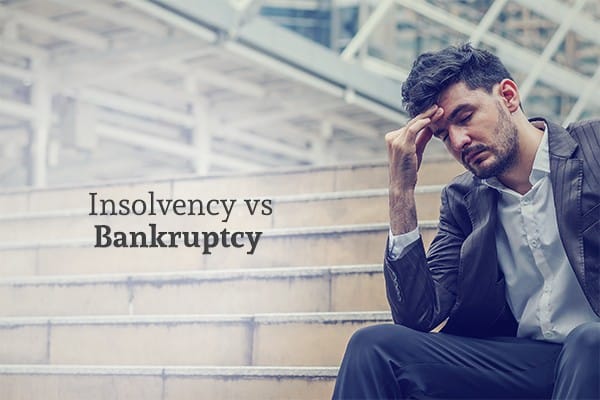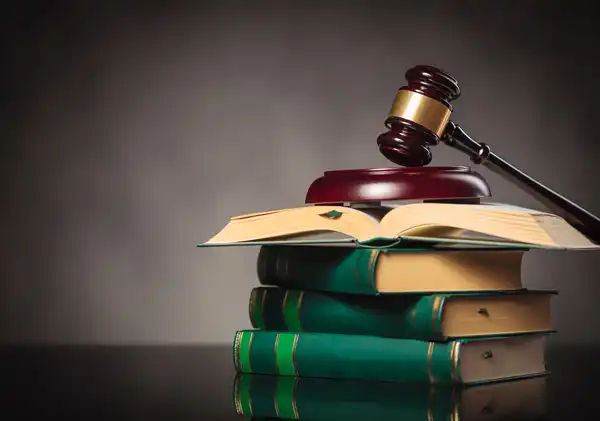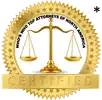
Insolvency vs Bankruptcy: Determining the State of Your Debt
When individuals or businesses are buried in overwhelming debt, two terms often come into focus: insolvency and bankruptcy. Though they are related, insolvency and bankruptcy carry very different legal definitions and consequences. Understanding the difference between the two is critical for determining your financial options, protecting your property, and knowing when your situation has reached the point that legal intervention is the most strategic path forward.
At Machi & Associates, P.C., Arlington's most trusted bankruptcy law firm, our attorneys help Texans navigate the complexities of debt, whether you're facing short-term cash flow issues, long-term financial imbalance, or possible legal enforcement by creditors. Below, we explain the differences between insolvency and bankruptcy, what they mean for individuals and businesses, and how to decide whether filing for bankruptcy is the right choice for your situation.
What Is Insolvency?
In simple terms, insolvency means being unable to meet your financial obligations as they come due. You may have debt balances that exceed the value of your assets, or you may just lack the liquidity (cash or equivalents) necessary to pay ongoing bills. Insolvency does not automatically equal bankruptcy, but it is often the first step toward it if the financial strain continues.
Signs You May Be Insolvent:
- Using credit to pay for basic living expenses (rent, groceries, utilities)
- Consistently unable to make minimum payments on debts
- Maxing out credit cards and unable to pay them down
- Receiving late notices, collections letters, or legal threats from creditors
- Receiving court notices for garnishment, repossession, or foreclosure
Types of Business Insolvency
There are two major types of business insolvency:
1. Cash Flow Insolvency
This form of insolvency occurs when a business brings in less revenue than it owes in bills. Even if a company has valuable assets on paper, it can't meet payroll, pay rent, or cover operating expenses, which creates an immediate crisis.
2. Balance Sheet Insolvency
A business is balance sheet insolvent when its total debts exceed its total assets. This doesn’t mean the business has no cash, but creditors and investors can view this as a serious red flag because the company owes more than it owns.
Some businesses may be cash flow insolvent but not balance sheet insolvent, or vice versa. Without a clear recovery plan, either condition can lead to bankruptcy. Our Arlington bankruptcy attorneys at Machi & Associates, P.C. can help determine whether your business can be saved through strategic restructuring or whether it's time to consider formal bankruptcy protection.
What Is Personal Insolvency?
For individuals, insolvency generally means you owe more than you own and you’re unable to make payments when they are due. With accumulating bills, declining credit, and increasing stress, many people avoid the word “insolvent” even as they fall behind on credit cards, loans, or household payments.
Common Causes of Personal Insolvency Include:
- Job loss or reduction in income
- Medical emergencies and healthcare costs
- Divorce, separation, or unexpected family obligations
- Losing a business or primary income stream
- Car accidents resulting in injury or reduced employability
- Mental health issues or physical disability
If you're currently insolvent, you may still avoid bankruptcy by negotiating with creditors, taking on part-time work, or cutting discretionary spending. However, when income simply cannot keep up with required payments, continuing the struggle may damage your future more than help.
When Should an Individual or Business File Bankruptcy?
Insolvency becomes bankruptcy when a debtor takes the legal step to file for court protection and debt relief. Bankruptcy is a formal process governed by federal law that gives debtors an opportunity to either eliminate their debts (in Chapter 7) or reorganize and repay them over time (through Chapter 13 or Chapter 11 for businesses).
You Should Strongly Consider Bankruptcy If:
- Your salary can no longer cover your monthly minimums
- You are facing foreclosure, repossession, or wage garnishment
- Lawsuits have been filed against you by creditors or collections agencies
- Your credit score has plummeted below 600
- You're repeatedly borrowing money to pay bills
- You have no clear path to pay off unsecured debt within 3–5 years
In these cases, filing for bankruptcy can free you from crushing debt, stop aggressive creditors, and give you the financial reset you need. At Machi & Associates, P.C., we analyze your specific situation, income, assets, and goals—then guide you toward the best course of action.
What Happens During Bankruptcy?
Chapter 7 Bankruptcy – Fresh Start Through Liquidation
Chapter 7 is often the best route for individuals whose income is too low to support a repayment plan. In most Texas cases, people who file Chapter 7 keep all of their property because of generous Texas exemptions. The bankruptcy eliminates unsecured debts like credit cards, payday loans, and medical bills in 3–6 months.
Chapter 13 Bankruptcy – Repayment Plan for Wage Earners
Chapter 13 allows individuals earning steady income to reorganize their debt into a more manageable monthly payment. This is a powerful option if you want to stop foreclosure, catch up on car payments, or protect assets that may be non-exempt under Chapter 7. The plan lasts 3–5 years, and upon completion, remaining eligible debt is discharged.
Chapter 11 Bankruptcy – Debt Reorganization for Businesses
Businesses use Chapter 11 to restructure and keep operating. With the help of bankruptcy protections, businesses renegotiate debts, cancel unfavorable contracts, and implement survival plans while maintaining assets and customer relationships.
What About Personal Injury or Business-Related Lawsuits?
If your insolvency stems from or is complicated by a disability, medical condition, or accident, Machi & Associates, P.C. has a talented personal injury legal team in-house. Many times, we help clients pursue financial recovery from third-party lawsuits while managing the debt and bankruptcy side to optimize the outcome.
For example, an individual injured in a car accident may be unable to work, resulting in unpaid bills and deteriorating credit. By managing both the personal injury and bankruptcy strategy, we ensure you get maximum compensation without risking loss of your settlement due to unresolved debts.
Don’t Wait Until It’s Too Late to Seek Help
Delaying intervention can limit your options. Some people continue borrowing high-interest payday loans trying to stay afloat or sell valuable property only to end up filing bankruptcy anyway—with fewer protections and more hardship. If you are insolvent and struggling, consult with the experienced attorneys at Machi & Associates, P.C. before making major decisions. You may be able to preserve assets, avoid garnishment, and even stop foreclosure or repossession immediately.
How Machi & Associates, P.C. Helps Arlington Clients Navigate Insolvency and Bankruptcy
With over three decades of legal experience, Machi & Associates, P.C. has helped thousands of North Texans get back on their feet—whether through smart negotiations with creditors, debt consolidation legal advice, or full Chapter 7 or 13 bankruptcy filings.
Our Arlington Bankruptcy Law Firm Offers:
- Free, no-obligation debt evaluations
- Same-day emergency bankruptcy filings when needed
- Guidance during wage garnishment, foreclosure, repossession, or lawsuits
- Legal strategies for protecting exempt property under Texas law
- Streamlined filings, digital paperwork, and direct attorney communication
- Advice that aligns with your long-term financial goals
Insolvency vs Bankruptcy: Key Takeaways
- Insolvency is a financial condition—your liabilities exceed your assets.
- Bankruptcy is a legal process—you formally petition the court for debt relief.
- Not all insolvent individuals or businesses choose to file for bankruptcy, but once creditors begin collection action or lawsuits, bankruptcy often becomes necessary.
- Waiting too long can cause you to lose property, face garnishment, and limit available exemptions.
- Machi & Associates, P.C. stands ready to advise, protect, and fight for you—allowing you to move forward with confidence.
Contact Machi & Associates, P.C. for Financial Relief Today
If you're unsure whether your current financial challenges qualify as insolvency or are ready to take legal steps to eliminate debt, you don’t have to face it alone. Machi & Associates, P.C. is committed to being Arlington’s most trusted bankruptcy and debt relief law office, offering compassionate legal advice and effective strategies to clients in every stage of financial hardship.
Reach out today to schedule your free consultation and get the clarity you deserve. Discover if a tailored bankruptcy filing, creditor negotiation, or personal injury claim can put an end to the stress and hardship. With Machi & Associates, P.C., a better financial future starts now.






